Using rock salt on sidewalks and driveways might help melt some of that ice and snow this winter, but it can cause a lot more headaches down the road!
Winter is here, and that means dealing with slippery conditions around the home. And more times than not, the answer for many homeowners is to reach for that big bag of rock salt.
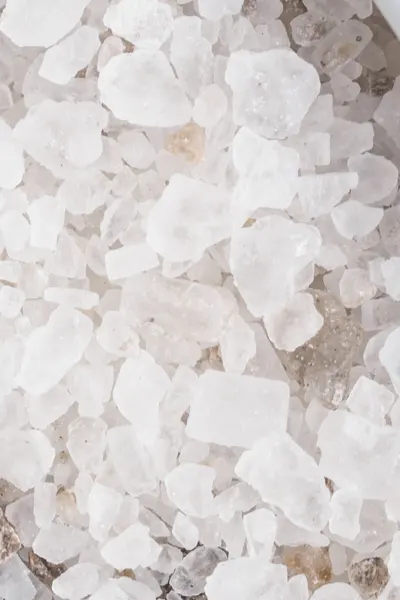
Rock salt is by far most popular choice when it comes to trying to melt snow and ice on surfaces. It is also, coincidentally, one of the least expensive to purchase.
And it indeed works well. Especially when temperatures don’t dip too far below freezing.
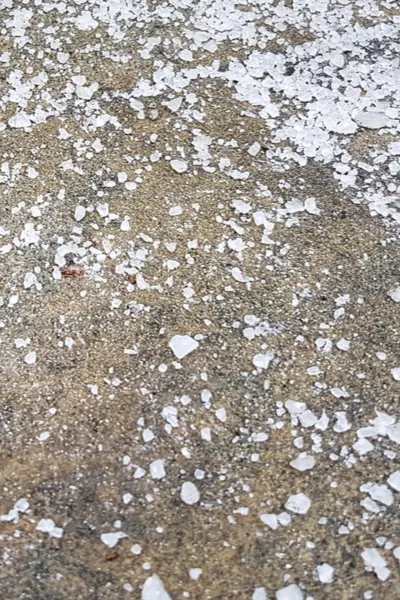
But unfortunately, using rock salt causes a tremendous amount of harm to both your landscape, and your hardscapes! And here is why:
Why Not To Use Rock Salt On Sidewalks, Driveways & Patios
Damage To Sidewalks, Walkways & Patios
Rock salt, or sodium chloride as it is officially known, is highly corrosive to concrete, asphalt and brick. As it melts the snow and ice, trace elements remain behind.
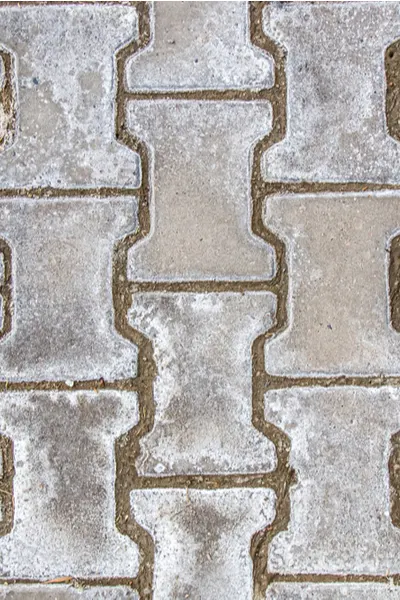
And those corrosive remnants find their way onto the hardscape surfaces. But even more damaging, into the porous holes of them.
The salt that remains on top can scar and mar the surfaces permanently. Leaving unsightly streaks and stains.
But the salt that gets into the cracks can create real problems. creating holes and cracks that only widen with freezing and thawing. And ultimately, the surfaces need repaired or replaced.
Damage To Plants
Although some of the salt remnants remain on and in the surfaces, most are washed off into nearby lawns and flowerbeds. And that can cause a lot of short and long term problems.
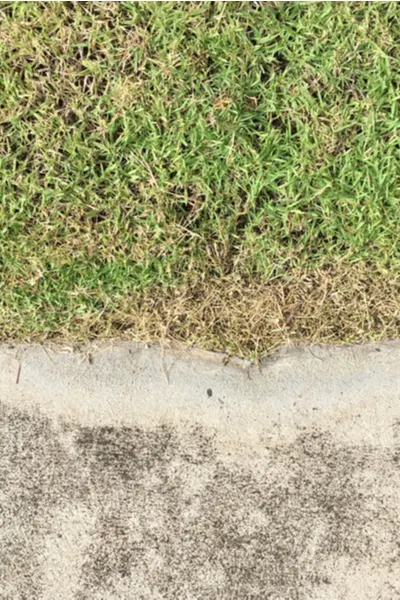
When excess salt penetrates the soil, plants absorb the sodium from the salt through the roots. Because salt attracts water, the rock salt in the soil robs plant roots of essential water, causing dehydration.
Salt damage to deciduous plants and trees might not be noticeable until spring, when plants fail to produce leaves or don’t bud properly due to salt damage. Salt-damaged grass is often brown and patchy.
What Is The Answer?
Unfortunately, the safest and best answer of all is keeping the walkways clear with good old fashioned shoveling or snow-blowing.
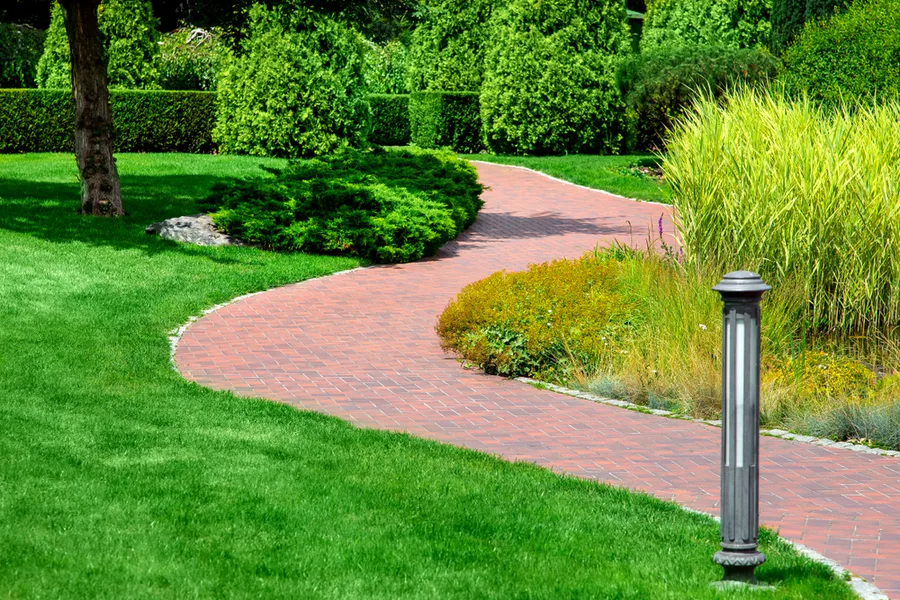
But beyond that, there are some alternative solutions that are both safer for plants, and the hardscapes.
Although it won’t melt snow, sand is a good choice for adding traction to slippery surfaces.
Beet juice is another natural substance that is gaining more and more attention as well. It actually has a lower freezing point than rock salt, and safe for both plants, surfaces & animals.
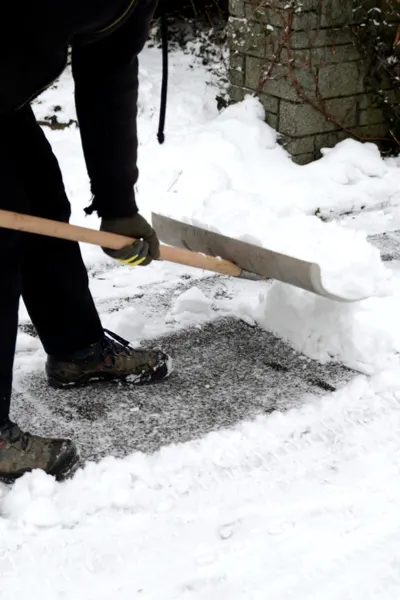
Calcium Chloride is another option that is at least safe for plants and lawns. It actually can add calcium to the soil, which plants need.
It is far safer on sidewalks and patios, but can cause some streaking and damage if used in high amounts, or left to sit on the surface. If you do choose to use it, try to clear off residue that remains after the snow has melted. Affiliate Link : Calcium Chloride
Here is to keeping those sidewalks clear, and your concrete, pavers and plants healthy!
Jim and Mary Competti have been writing gardening, DIY and recipe articles and books for over 15 years from their 46 acre Ohio farm. The two are frequent speakers on all things gardening and love to travel in their spare time.
As always, feel free to email us at thefarm@owgarden.com with comments, questions, or to simply say hello! You can sign up for our free email list in the subscribe now box in the middle of this article. Follow us on Facebook here : OWG Facebook. This article may contain affiliate links.
